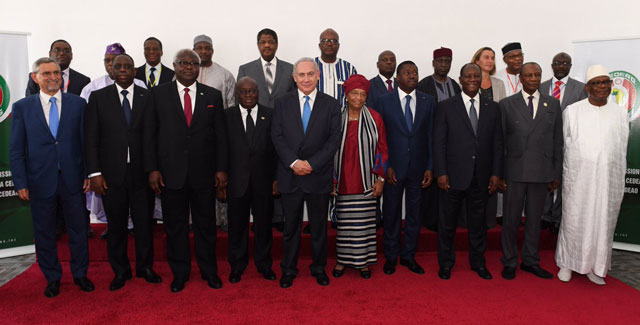
On release they were given bus tickets to Tel Aviv, arriving at the central bus station on the south side of the city.
Many stayed in the surrounding Neve Shaanan neighbourhood, long rife with prostitution and crime.
Rents there are low and landlords are not choosy about tenants.
“The reason we are here is that this is the only area we know. We didn’t choose it,” said Tsgahans Goytiom, a 30-year-old Eritrean known in the neighbourhood as Johnny.
“No Israeli wants to be here in this neighbourhood.”
In 2012, an anti-migrant demonstration in Tel Aviv drew about 1,000 protesters.
One speaker was Miri Regev, a lawmaker from Netanyahu’s Likud party, who is now a minister in his right-wing government.
“The infiltrators are a cancer in our body,” she told the rally, which spiraled into a race riot in which there were shouts of “Blacks out!” and attacks on African-run shops.
Today the streets of Neve Shaanan are lined with African grocery stores and hairdressers alongside storefront law offices advertising advice for migrants.
‘Everybody is waiting’
Israeli residents have formed “The South Tel Aviv Liberation Front” to lobby the government for harsher measures against the newcomers.
“They brought here a Third World culture, lots of misogyny, lots of chauvinism, lots of homophobia and a lot of disrespect,” Front leader Sheffi Paz alleged.
“Disrespect towards the authorities, disrespect towards the law, disrespect towards the residents.”
The migrants, who Drori-Avraham says meet the UN definition of refugees, live in a strange half-world where the rules are often contradictory.
Their visas do not grant the right to work but when the holders go to renew them every two months they are asked to produce pay slips to prove they are employed, the migrants and their supporters say.
The government tacitly recognises the Sudanese and Eritreans cannot be returned to their dangerous homelands.
So Israel has signed deals with Rwanda and Uganda, which agree to accept departing migrants on condition they consent to the arrangement.
Candidates are offered payments of $3,500 and threatened with indefinite detention if they refuse, Drori-Avraham says.
Those who accept find themselves stranded in alien countries where they have no roots and no common culture or language.
Israel’s Supreme Court ruled last month that open-ended imprisonment is illegal and that migrants can be held for no more than 60 days.
Netanyahu said he would find a way round that decision, and draft legislation has been written which would allow the deportation of migrants if passed.
Goytiom has been in Israel for eight years, arriving after a gruelling trek across Ethiopia and what he says was kidnap and torture by Bedouin in Sudan and the Sinai.
With his wife he runs a kindergarten for migrant youngsters.
“If we had the option of change in Eritrea we would not stay here another month,” he told AFP. “Everybody is waiting for the present situation to change.”
 The Independent Uganda: You get the Truth we Pay the Price
The Independent Uganda: You get the Truth we Pay the Price



